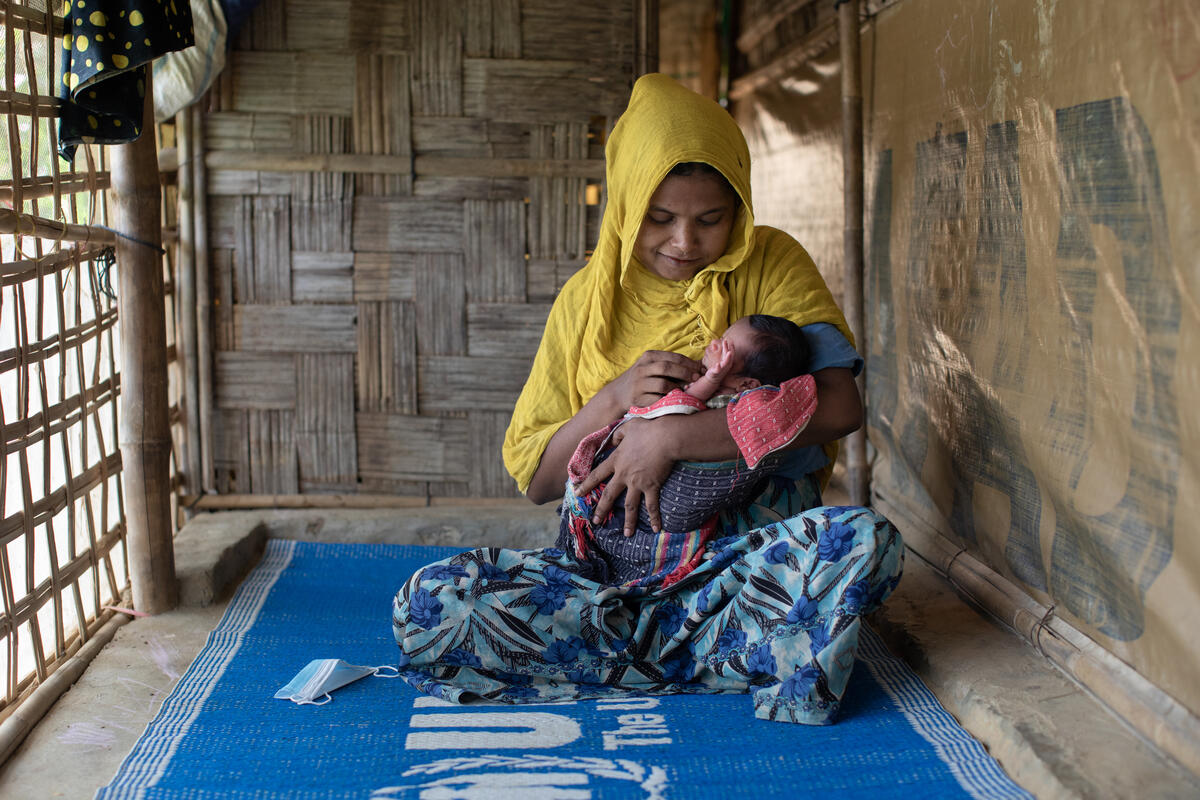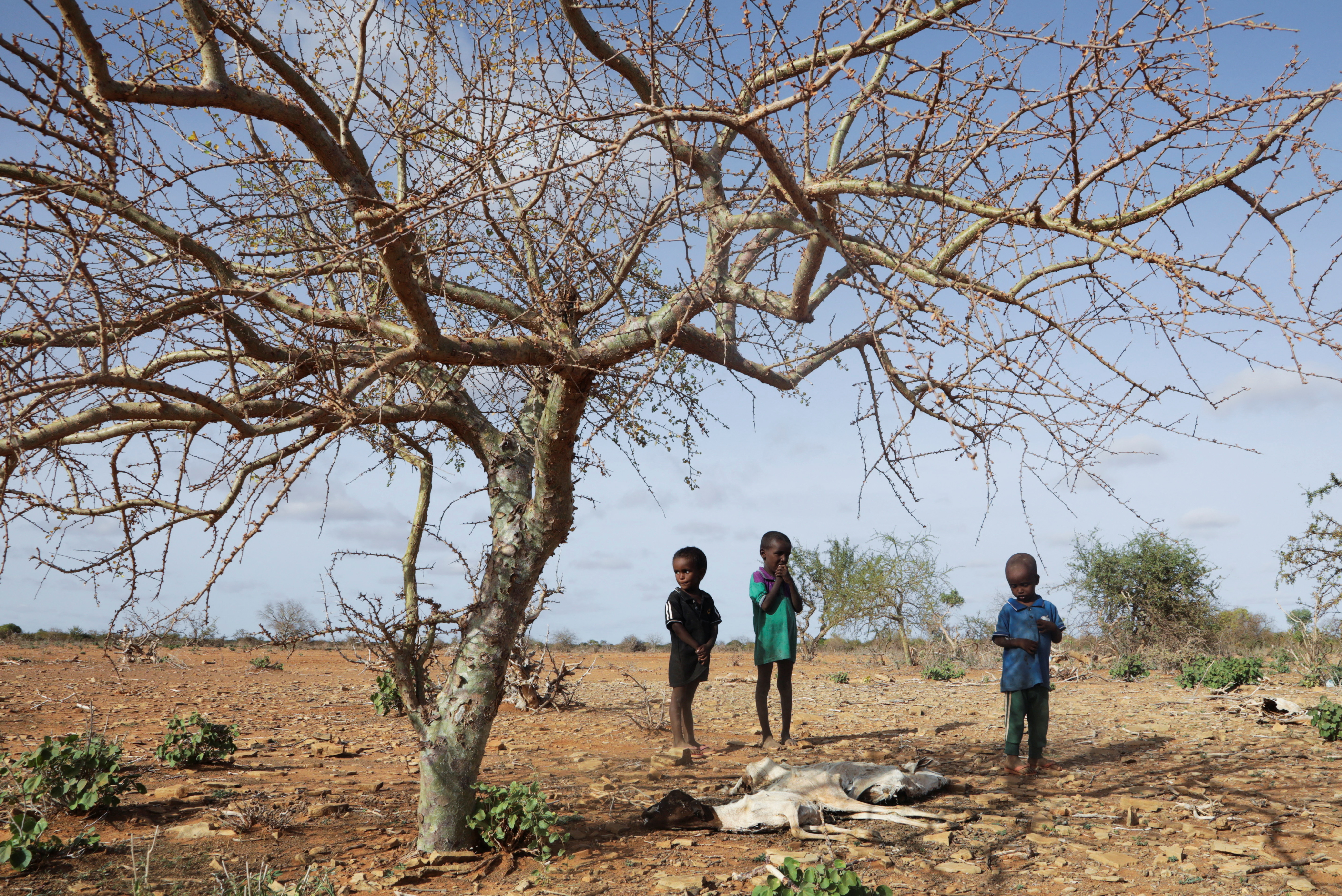Funding needed for two vital operations
Funding needed for two vital operations
UNHCR is urgently in need of funding for our work in the Western Sahara and Algeria refugee camps and for our repatriation operation for Mauritanian refugees. Yesterday, we convened a special donor meeting to urgently appeal for funding for these operations. The meeting was attended by Mr. Julian Harston, the UN Special Representative for the Secretary-General in the Western Sahara (MINURSO), and by the ambassadors of both Mauritania and Senegal and representatives of various donor countries.
Earlier this year, UNHCR appealed for $3.5 million to continue various confidence-building measures - including family visits, telephone services and seminars - aimed at connecting Sahrawi refugees in the Tindouf camps in Algeria and their relatives in the Western Sahara Territory. As we noted last month, only about half of the appeal had been funded and there has been minimal reaction from donors. We fear we may have to suspend family visits by next month.
Sahrawi refugees started arriving in Algeria in 1976 after Spain withdrew from the Western Sahara and fighting broke out over its control. Most of the Sahrawi refugees have been living for 32 years in the desert regions of Tindouf in western Algeria, while some stayed in the Western Sahara. This has meant long-term family separation. In 2004, UNHCR introduced several measures to re-establish contact between families, including five-day visits with relatives and loved ones, reuniting many of them after 32 years of separation. The visits contribute significantly to relieving the trauma and suffering of the Sahrawi people and to increasing the climate of trust between all parties involved in the Sahrawi conflict.
Since March 2004, a total of 4,423 people have benefited from the family visits, while 19,000 people have registered and are waiting to take part in the programme. In addition, a total of 83,675 calls have been made at four telephone centres.
Meanwhile, at the end of August, UNHCR launched a US$7 million appeal to fund the voluntary repatriation of 24,000 Mauritanian refugees mainly from Senegal and Mali. This return will help resolve one of the most protracted refugee situations in Africa and represents the only durable solution in the Middle East and North Africa region at present. Some of the Mauritanian refugees have spent more than two decades in exile. The 17-month operation, which faces some major logistical challenges, is scheduled to start this month. But with only $500,000 received so far, we fear serious delays.
More than 60,000 Mauritanians fled to Senegal and Mali in April 1989 when a long-standing border dispute between Mauritania and Senegal escalated into ethnic violence. Between 1996-98, UNHCR assisted with the reintegration of 35,000 returnees who decided on their own accord to return to Mauritania. On 20 June of this year, the newly elected Mauritanian president announced his decision to invite all remaining refugees to return home.
According to a recent survey, some 24,000 Mauritanian refugees living in over 250 different locations in Senegal wish to return to some 50 communities in four regions of Mauritania. In addition, there are also Mauritanian refugees in Mali, some of whom have also expressed a wish to return home. A tripartite agreement between the governments of Mauritania and Senegal and UNHCR setting out the legal framework for the return is expected to be signed this week.
UNHCR will help the Mauritanian refugees return home by organizing safe transport and providing initial reintegration assistance in their places of origin. We will also support the local communities with infrastructure, health and education services. The operation has been carefully planned to avoid the rainy season and its travel difficulties. Due to limited absorption capacity and poor infrastructure in return areas, we plan to repatriate up to 7,000 refugees before the end of this year. Other refugees will go home in 2008. We will maximize the use of existing resources and minimize the cost of this new operation by redeploying as many assets as possible from other programmes that are currently phasing down in West Africa.







